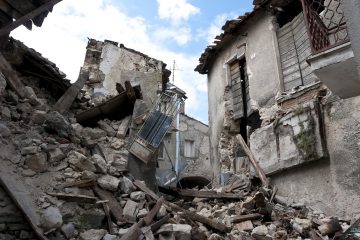@SraSpanglish commented on my post “Kick the vocab quiz“:
“I feel like I can’t do this with Spanish I, and it’s hard with Spanish II. Also, what are students graded on instead?”
At this point, I only teach very early elementary, who only receive a grade of “excellent/satisfactory/needs improvement” once a quarter, and advanced students. I realize that’s quite an uncommon setup. But when I was teaching 5 periods of Spanish 1 and 2 (along with Spanish 3) I also never gave vocab quizzes. I’m a bigger fan of @alfiekohn than I am of grades, but at my school we have to give them (as, I’m sure, do you) so here’s an outline of where my assessment comes from.
In Spanish 3 and 4 (AP), both classes receive grades for:
Completing the chapter guides for our books
Writing a free-topic blog post once a week
Doing listening cloze quizzes on things such as commercials
Doing a regular vocabulary review (see #1)
In Spanish 3, students also:
do intermittent writing/speaking assignments related to recent target features (in class)
do an end-of-unit assessment, profiency- and task-based, as in a how-to demonstration (to elicit commands) or telling an interesting true story about themselves (to elicit combined past tenses)
In AP, students also:
do a weekly “fluency” activity on their own
write AP-style essays & interpersonal writing pieces
do AP-style oral presentations
When I was teaching Spanish 1 & 2, students did:
-the same regular vocabulary review
-also a weekly blog post, beginning with question prompts in 1st semester of Spanish 1 and changing to free-topic word count requirements starting in the 2nd semester of Spanish 1
-also listening cloze quizzes (the difficulty is in the words you drop- for beginners, you drop numbers and greetings, for example)
-also prompted writing/speaking with target features (i.e. 5 phrases describing your family using person + es + adjective from vocabulary)
Different from advanced students, however, were:
Yes, vocab quizzes. Well, I suppose you could call them vocab quizzes because they were assessment designed to elicit vocabulary. But my format of low-level quizzes were always unannounced (to avoid short-term memory cramming) and took three forms:
1) Ask random questions to elicit vocab, and the answer just has to make sense or be true. (¿De qué color son los ‘arches’ de McDonalds?)
2) Ask questions about stories we’ve been doing in class. (¿Quién es el amigo del pingüino?) Students were required to draw/label stories in their composition notebooks and were allowed to use them for quizzes.
3) Describe a drawing for students to draw and grade on how the drawing turns out. (“Hay una niña. La niña tiene una banana verde.”) Colored pencils were a supply requirement.
Hope this helps clarify how I did some of my lower-level assessment.
6 Comments
Comments are closed.




So on the post you reference here, I'd commented that I thought I should try one at a time, so I've decided to try the vocabulary review and the cloze quiz, at least in Spanish I. I think these will do nicely with our weather mini-unit. I'm not sure I get how to do the credit for tally marks part, so if you could elucidate, I'd have a better chance of pulling it off. Actually, I might have them draw what I describe, too. This would have worked well for the cooking unit.
I'm afraid the whole penguin activity fell apart for me immediately after your pacing guide ended. HOWEVER, I do, as a result, do a better job of talking to the young ones in Spanish more often AND asking questions and asking follow-up questions with more "wrong answers," as you suggest (though still not as often as I'd like or they need).
I'm still afraid I've structured Spanish 2 in such a way that these changes are less natural (part of that being because I mangled their Spanish I experience). Still, the cloze and regular practice could work.
Thank you!
You're very welcome- growing in our field is a journey for everyone – it certainly was for me! My current Spanish 3 students sometimes remark that they miss Jeffrey (the penguin) but this year they have Sam Swope the horse and Paco the cowboy, although it's not nearly as frequent because of the new depth of subject matter.
I score the vocab activity at 50 points every 6 practices. I tell them they're racing against themselves, not each other. So if they stay the same (there's only so much you can improve in speed) or increase, they get full credit. If I catch them goofing off I put a frown-face next to the date to remind myself that they need to lose points for not doing it.
Really, many of them don't like the activity at all, but for training their mouths, and exposing them to chunked high-frequecy vocab with such a focus in the time we have, without vocab quizzes or homework, I haven't found anything better.
So I tried the regular vocab (and talked up how an EXPERT Spanish teacher had endorsed it–they were very impressed) starting today, but we're going to do it PLUS the vocab quiz to measure comparative efficacy. They weren't QUITE on task, but I figured today was kind of getting used to the idea…that's ok, right?
Sounds good to me. Expert, lol. Just learning as I go and trying to share the journey. 😉
I'm really trying to pry myself away from the textbook, but it seems like my safety net 🙂 If you don't use a textbook, where do your vocabulary words/phrases come from? How do you pick what to focus on?
[…] over to Musicuentos.com and read through the Assessment tag, and found this description of how Sara-Elizabeth did vocab quizzes in Spanish 1 and […]